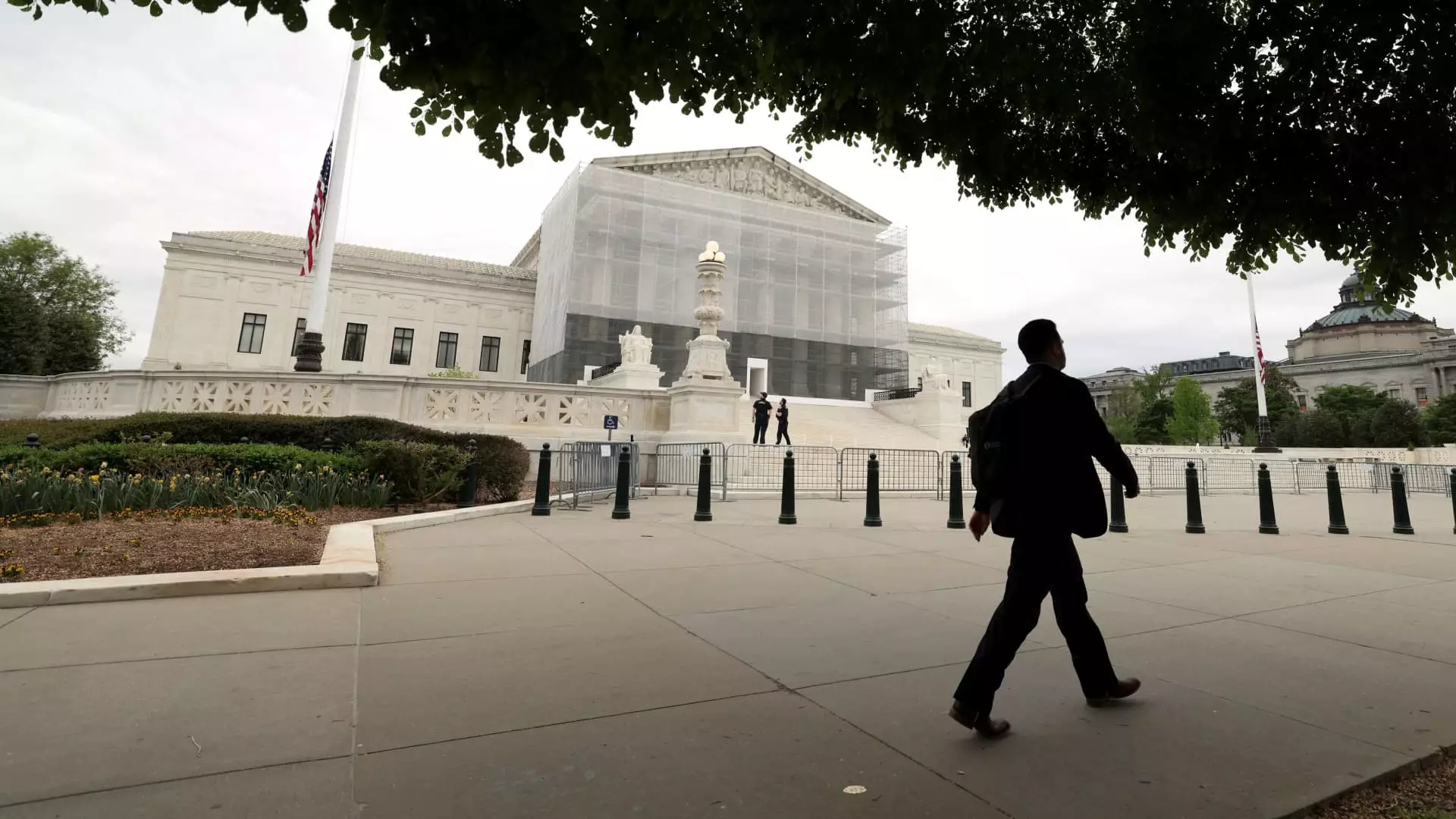The recent Supreme Court decision to grant a temporary injunction against the deportation of Venezuelan nationals has raised critical questions about the balance between national security and individual rights. This 7-2 ruling highlights not only the court’s concern for due process, but also its hesitance to fully confront the implications of the Trump administration’s invocation of the Alien Enemies Act. As we dissect this ruling, it becomes clear that America’s commitment to justice is often invoked selectively, particularly when political motivations cloud legal rationale.
The justices underscored that the Trump administration had failed to provide adequate time or resources for the detainees to mount a defense against their deportations. Notably, the majority noted that merely 24 hours’ notice—without sufficiently comprehensive information regarding their legal rights—does not meet constitutional standards. This decision reflects a necessary recognition that human lives hang precariously in the balance, and to treat individuals like mere statistics in a national security story is both dehumanizing and reckless.
National Security vs. Individual Rights
The ruling explicitly states that the interests of these Venezuelan individuals—allegedly linked to the notorious Tren de Aragua gang—are “particularly weighty.” This characterization reveals an inherent tension within the ruling itself: while the court openly acknowledges the plight of these individuals, it simultaneously upholds a controversial statute that can be exploited for political ends. The question arises, though—how do we reconcile national security with the fundamental rights owed to individuals, especially when the shadow of executive power looms large?
The court’s refusal to determine the appropriateness of the Alien Enemies Act’s implementation is significant. While they stopped short of dismissing the Act entirely, the refusal hints at a larger legal battle that will determine not just the fate of these detainees but also set a precedent for how laws can be utilized to target specific groups. The rhetoric of “invasion” employed by the Trump administration rings alarm bells; when the government can label entire populations as enemies, we must question where the line is drawn between safeguarding the nation and upholding justice.
Potential for Misuse and Misinterpretation
The dissenting opinions from Justices Alito and Thomas reveal the complexities and fractures within the judicial perspective. They suggested that the perceived “inaction” of the lower court pains a misleading picture of the urgency and gravity of the situation. Dissenters echoed the sentiments that are often heard in the conservative discourse—concerns of potential abuses of legal processes if too many protections are afforded to the deportees. Such views amplify the underpinning paranoia around immigration and national security, which skew rational analyses and push affected individuals further into the shadows.
The government’s narrative of a foreign threat becomes problematic when the language used can easily result in a scapegoating of entire communities. The use of the Alien Enemies Act against Venezuelan nationals is particularly troubling; their home country is itself embroiled in a humanitarian crisis, yet they face further persecution upon attempting to find refuge in the U.S. It amounts to a violation of human dignity, masked by purported interests of national security.
A System in Need of Reform
This situation shines a glaring light on the urgent need for immigration reform in the United States. The legal system must prioritize fairness and justice over expediency driven by fear. The Supreme Court has made a small step towards recognition of these principles; however, what remains is an incredibly imperfect justice system that can and often does prioritize political expediency over human rights. The dialogue surrounding the enforcement of immigration laws must shift to account for the humanity of those within our borders—not merely their legal status.
As this case returns to the U.S. Court of Appeals for the Fifth Circuit, the prospect for justice remains tenuous. Every day that these individuals wait—and every moment they experience uncertainty—demands a larger conversation about how we define enemies. If we do not tread carefully, we risk losing sight of what it means to be human in the pursuit of a security narrative that can easily overshadow this ethos. In our quest to safeguard the nation, we must not overlook the values that make us who we are: a country built on principles of justice and compassion.


Leave a Reply